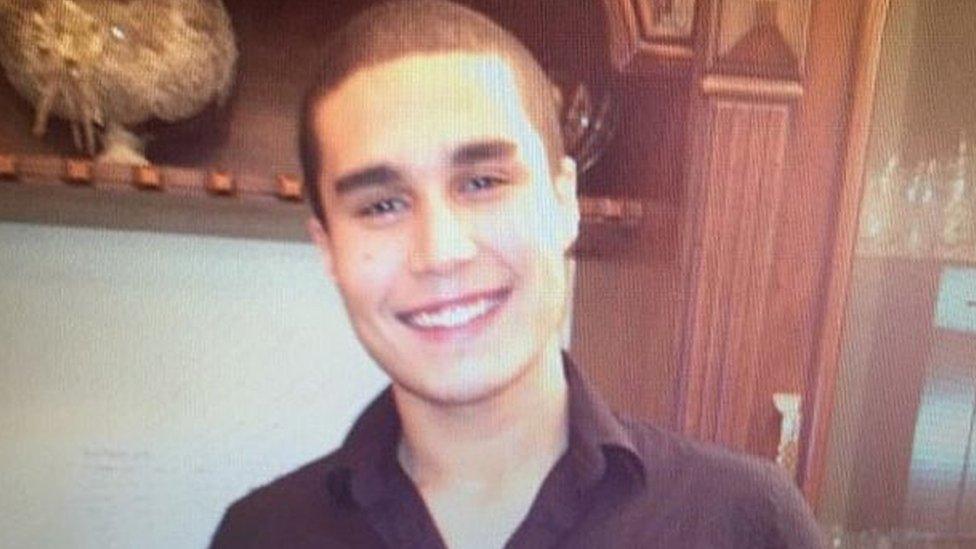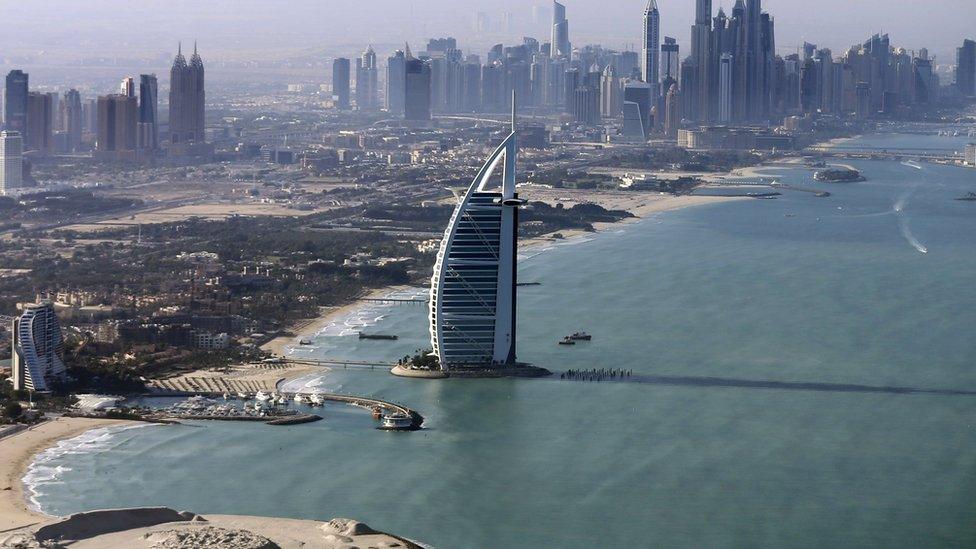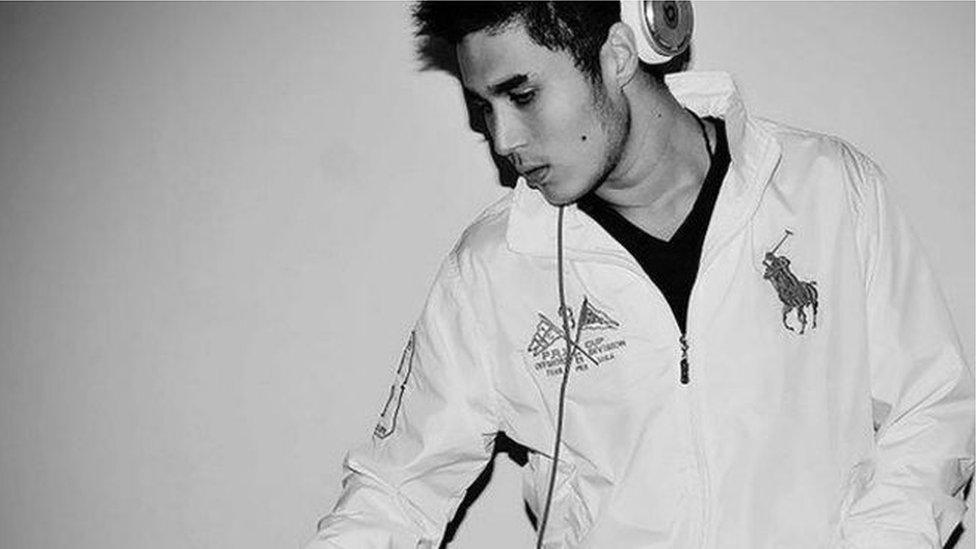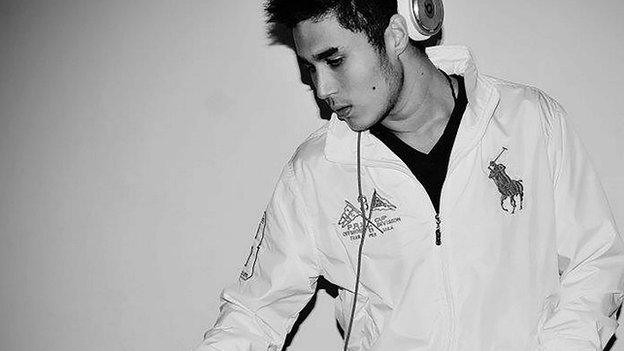Jailed student Ahmad Zeidan to appeal to UAE ruler for pardon
- Published

Ahmad Zeidan was jailed in 2014 for being the passenger in a car that was found to contain 0.04 grams of cocaine
The family of a British student jailed in the United Arab Emirates are hoping for a "miracle" when he pleads for a pardon.
Ahmad Zeidan, 23, was sentenced to nine years in 2014, but claims he was tortured into admitting drugs charges.
His father Manal Zeidan said local media reported his son's plight after the BBC's coverage and he hoped a plea would now be favourably received.
Zeidan, formerly from Reading, recently ended a three-day hunger strike.
He was imprisoned in an Emirate of Sharjah jail after police found 0.04 gms of cocaine, with a street value of £3, in a car that he was a passenger in.
All the local men in the car were given pardons but Zeidan was handed a nine-year sentence. UAE authorities deny any claims of torture.

Police found 0.04 grams of cocaine in a friend's car that Ahmad Zeidan was a passenger in
His father said "thanks to the BBC's coverage" Brigadier General Saif Al-Zari Al-Shamsi, Commander-in-Chief of Sharjah Police, was interviewed in the United Arab Emirates media.
His son will now plead for a pardon directly from the ruler of the Emirate of Sharjah, Sheikh Sultan III, he said.
It is hoped the recent media coverage will work in Zeidan's favour.
The student will also highlight to the ruler that he had previously been in the press for saving the life of a young girl in Dubai, external.
Mr Zeidan said: "This is his last shot at this stage and might result in a miracle".

Ahmad Zeidan (middle) was hailed a hero in the local gulf press in 2010 for helping to save a child in Dubai
He had gone on hunger strike earlier this month in protest at the lack of action from the British Foreign Office, which had previously stated it could "not interfere in another country's judicial system".
The Foreign Office has yet to respond to the BBC's request for a comment.
- Published11 July 2017

- Published4 July 2017

- Published23 June 2017

- Published13 January 2016
